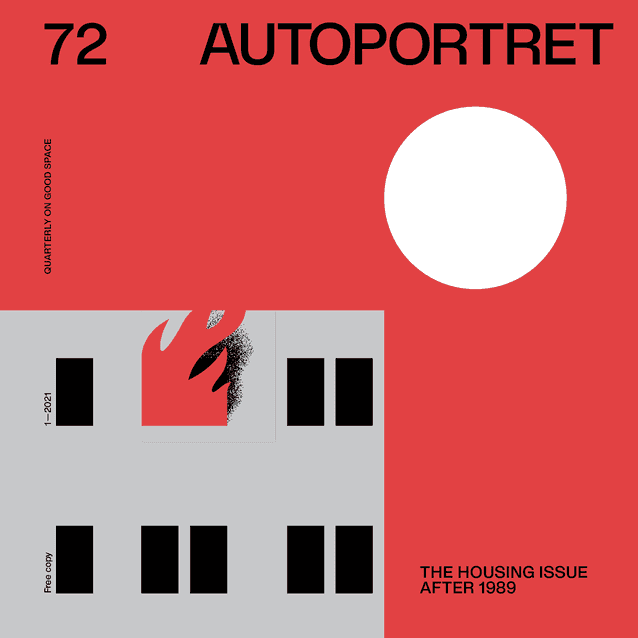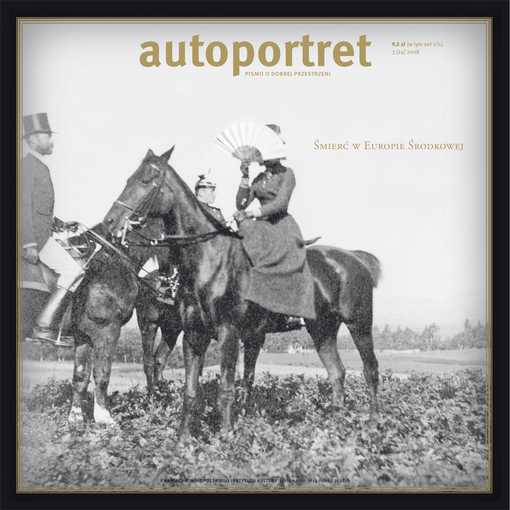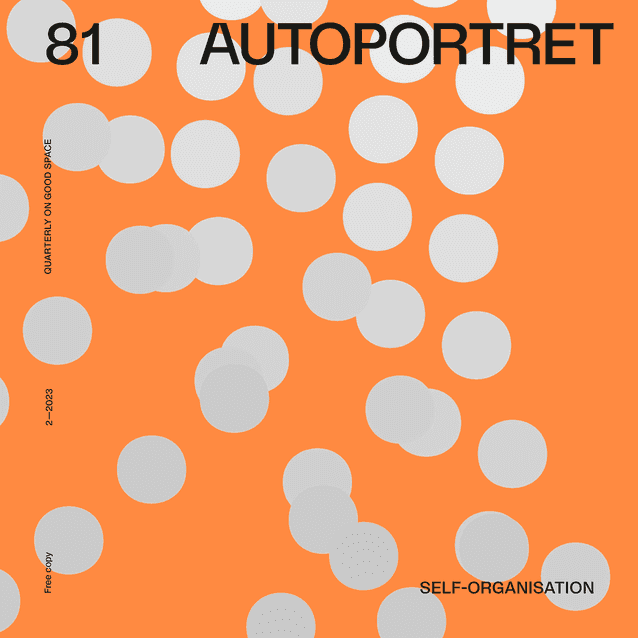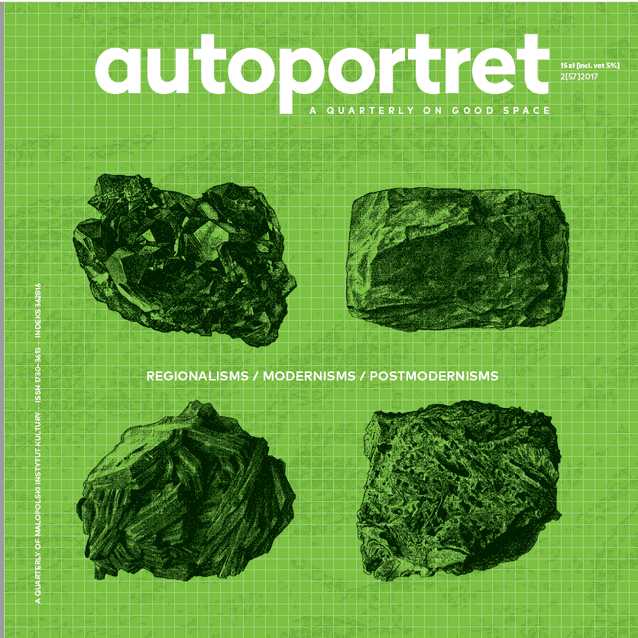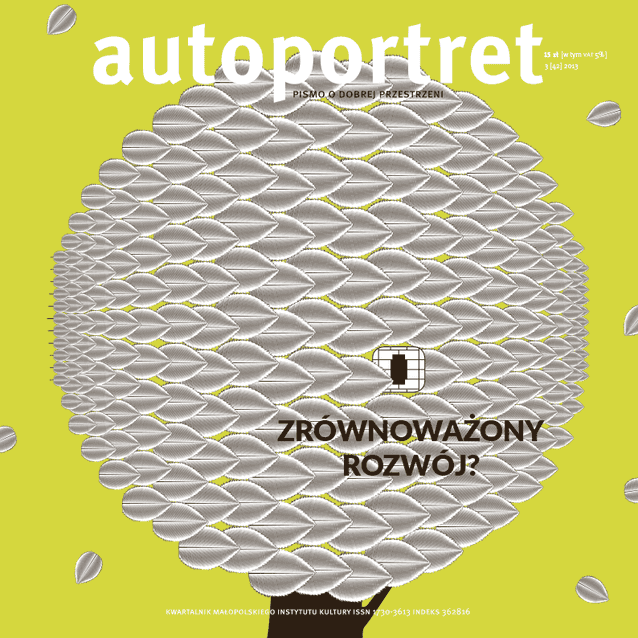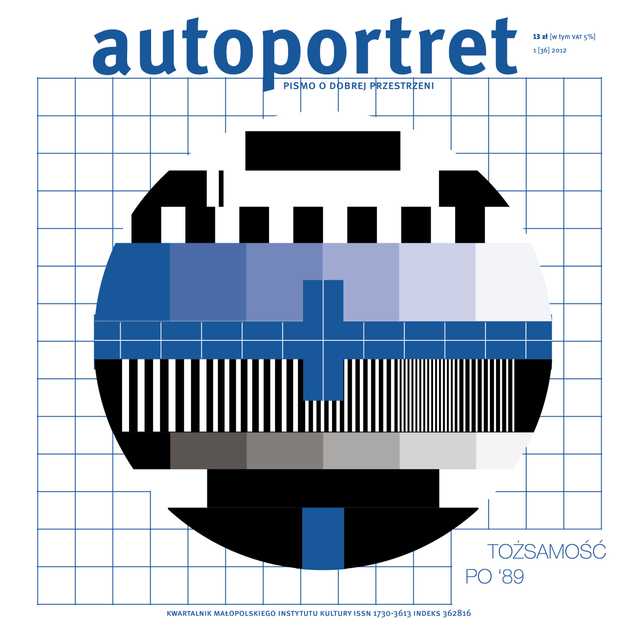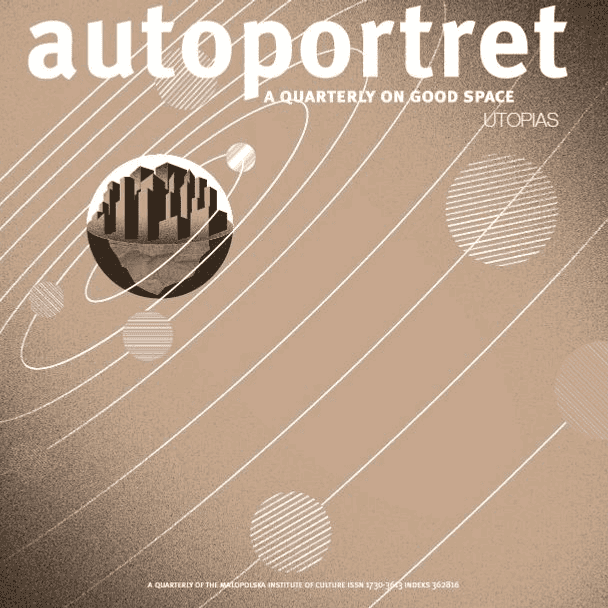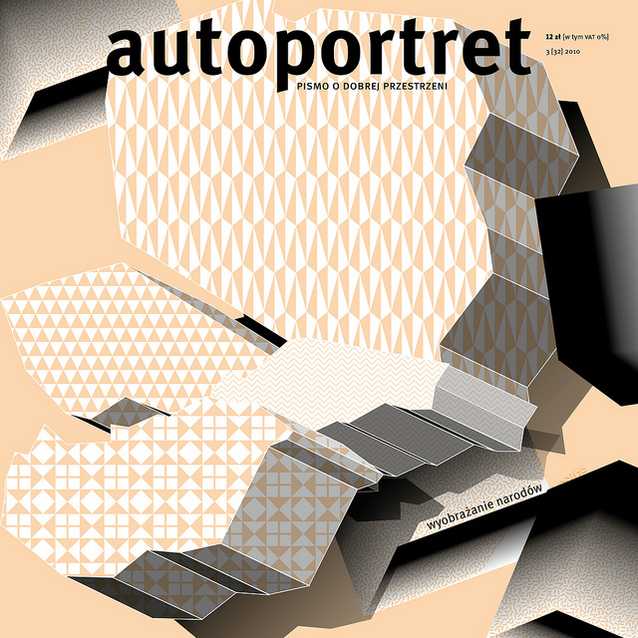Joanna Nowostawska-Gyalókay talks to Krzysztof Varga
joanna nowostawska-gyalókay: Nearly all your books feature the theme of death. We find descriptions of cemeteries, the process of growing old, and finally, of body decaying after death. Where does the need to talk about things transient come from?
krzysztof varga: If there is a cultural reason for this, it does not follow from the fact that I was growing up in the atmosphere of death. I believe that in our culture we remain in denial of death. An absolute denial. In fact it is a taboo. There are two taboos still remaining in our culture – sickness and death, everything else has been abolished. I was also fascinated by death, from rather obvious reasons, simply biological ones. I was born to a family of doctors, and my home was filled with medical books and as a child, I read a lot, I read nearly everything I could lay my hands on. I had a library of my mother’s medical textbooks, which for a young man, was rather…
jn-gy: shocking?
kv: Yes, shocking and fascinating, in a slightly sick way, kind of a turpist way, as these textbooks were generously illustrated. Besides my mother, as I have already told you, was a doctor, and unfortunately she behaved very badly, like a typical doctor, meaning that she always, for my own good of course, warned me against all kinds of diseases. She kept saying again and again: “wash your hands, wash your hands, microbes are lurking everywhere”. When I swallowed a chewing gum, she would threaten that my stomach would stick. In my opinion this is unpardonable from the educative point of view. For me this resulted in a number of neuroses. Later, when I was a teenager and attended high school, and I went to the Saint Augustine catholic school in Warsaw, I started listening to music a lot. I listened to punk bands, to new wave – the cold wave as we then used to call it – depressive music, grim bands such as The Cure, singing about how everything comes to an end and how we will all die. Actually, this was my making, emotionally. On the other hand, I was growing up in mid-eighties, when complete hopelessness and greyness prevailed, and back then, as a young punker, I really believed that there was noting – no future. All that somehow added up. Other than that, I remember particular events. A classmate in the primary school, we were perhaps ten years old at the time, who died of a brain tumour. I also remember the mortuary in which my grandfather was laid when he died. My mother and grandmother took me to that mortuary, to look at my grandfather. It was not so much a proper mortuary as a hospital room, where the dead body was laid out. Such things are memorable. And indeed I lapsed a little into a sort of unhealthy fascination with death. On the other hand, it wasn’t all that sick, I wasn’t interested in decorating myself with skulls. That fascination resulted from a very deep fear, an anxiety, and in some way it was a form of therapy. It came to the point that I was afraid to fall asleep, because I feared I would not wake up again.
jn-gy: Has this fascination, and the fear, remained with you to this day?
kv: When I am sick, I rather tend to look for a rational explanation. I do not think: “I have cancer,” and I avoid doctors, I treat them as the last resort. Which is typical, because in our country people go to the doctor only when they are on the verge of death. We do not have the tradition of preventive medical testing, I do not have that either. That so-called fascination of mine, that is the fact that I raise the subject, often meets with not so much incomprehension as indulgence on the part of the readers: “Man, blimey, you’re taking of death again.” While I believe that the two main themes art is concerned with are love and death – Eros and Thanatos. Everything else is secondary, is derivative, while these two are the foundations of our culture. There is no use pretending, love and death exist, and it does not follow that the subjects should be closed, that we should stop dealing with them. After all, death is the only thing that’s really inevitable. There is nothing we can do about it. Even if we eat soy bean sprouts… This is something man will never conquer. Of course, he can undergo therapies, he can prolong life, maybe extend it to the age of 120. Is this going to make us happier? I don’t know. I’m not so sure about this at all.
jn-gy: Are we going to live in isolation? Will death be an even stronger taboo?
kv: Yes. Death in our culture, the culture of the West, was above all an element of religious faith, of everyday life, and as such, it was largely “tamed”, familiarised. And now it ceased to be, because we are living in a secularised culture, mostly atheist, and highly individualistic. We are left alone in the face of death. We have lost our protective layers, such as faith. I myself graduated from a catholic high school, but I’m an atheist and I very much envy those who have faith. Faith gives people a serious protective sheath, while the situation of an atheist is wholly tragic, and even the Pascal’s bet that it is better to believe in God than not to believe, will not help a thing. After all it is difficult to rationally program that bet of Pascal’s for oneself. This is the problem of our culture. We generate endless situations of escape, we compensate these anxieties, but compared to people of past ages we have more of a problem. Such irrational epochs as the Middle Ages of the baroque, which heralded death with all their symbolism in a provoking, ever-present display (dance macabre), did better than we do now. I think that mediaeval people were not afraid of death. Firstly, it was something they saw every day, secondly, they believed in God, and thirdly, it was something natural to them, while we choose to struggle against it. I think that we will have more and more of a problem with death, failing even worse to deal with it, and denying it even more.
jn-gy: I hesitate to ask about your personal experience of death…
kv: I accompanied my father on his deathbed. He had been dying of cancer for six months, in my mother’s home. He was eighty-four. I often visited him. I think death became very much familiar to me then, I got used to it. The taboo was broken. In a situation like that, the roles are switched, he becomes a child, and I take care of him. There is physiology. Paradoxically, dealing with the process of dying has subdued my fear of death, instead of intensifying it. Already some time before my father’s death I noticed that I was taking over his gestures. This shook me quite a bit: I noticed that I started sitting the way he sat, fold hands, display reflexes I had never displayed before. When I started to notice that, he started dying. I know it sounds strange, but we take these things over from our parents. From the moment when he started dying, I was in a kind of stupor. I do not mean that I was insensitive, beyond caring, but noting interested me, nothing excited me, it was some sort of vegetable existence…
jn-gy: Numbness?
kv: Yes, a year-long numbness. Then I understood that mourning must last one year, and that it is a physical state – it does not consist in wearing black, but it is a purely physical state of numbness, which passes after a year. You have to devote that year to numbness, to giving up all needs and ambitions. You have to survive that year as a celery root.
jn-gy: And yet sometimes in your books the affairs of death have a comical dimension, and black humour shows through. You are laughing at death, for instance in the Terazzo Tombstone…
kv: Although we are helpless in the face of death, sometimes we can stick our tongue out at her. We shall never win, the score of the game is predetermined. But sometimes we can scre… snap her a little. And as far as my imaginary talk show, “Be a Corpse”, I did not invent it in order to mock death, but rather to demonstrate our pop culture, which is looking for increasingly strong thrills in order to excite us. As the recipients of mass culture we need an intense stimulation. It’s like a drug, because mass culture is like a drug, and we need increasingly large doses of it.
jn-gy: You were born to a mixed family – part Polish, part Hungarian. Do you notice any differences between the way Poles and Hungarians perceive death?
kv: Both nationalities live within the range of Christian culture, so I think the attitudes are similar. Let’s perhaps look not so much at culture, but at cultural life. When I think about it, it seems to me, that after all death is more present in Hungary, for a number of reasons. I think that the Hungarians are more aware of the fact that they are slowly dying out as a nation – they have negative rates of population growth, there are large numbers of elderly people, of pensioners. I remember reading somewhere that the number of people in Budapest decreased dramatically over the past seven years, although I couldn’t give you the exact figures. Some of these people have died, some emigrated to satellite towns nearby, and Budapest, which is a European metropolis, is slowly becoming a dying city. In this case we can talk not about the death of an individual, but of the death of a city which occurs gradually and slowly. More than that, I think that what is also significant here is the awareness on the part of the Hungarians, their belief, of being different – separate, distinct, unique. And the fact that they themselves do not really, fully know what they are, and where they came from. The Slavs live with the awareness that they have always been here. The Hungarians have their honfoglalás, that is, the acquisition of their homeland. When they started to settle in the Pannonian Lowlands, they ceased to be a nomadic tribe and they started to be a settled Hungarian nation. And they have this awareness of being something different, the only non-Slavic nation in the sea of Slavs. They know that they shall decrease in numbers, and in some long-term perspective perhaps their nation will cease to exist altogether. Here necessarily we must enter the subject of suicide, because as we all realise, suicide is something Hungary is known for. In the Polish culture we had but a few cases of suicides among artists, for instance Witkacy or Lechoń, but these suicides were never stressed or lauded. It seems to me that in the Polish culture, suicide is also a taboo, it is something shameful. On the other hand, in Hungary suicide is perceived as something more or less natural. In fact, we could enumerate Hungarian artists who took their own life, beginning from József Attila, and ending with Sándor Márai, so popular in Poland today, or pop-culture TV stars, such as Pál Szécsi or Jimi Zámbo. In Poland we tend to think that suicide belongs to avant-garde artists, who are misunderstood by the world around them, rejected, a little crazy, but we cannot imagine that the participants on “Star Show on Ice” would suddenly…
jn-gy: take their own lives?
kv: Exactly. For instance Csilla Molnár, Miss Hungary of 1988, killed herself. Who would have imagined a Miss Poland kill herself?
jn-gy: In that case what is the reason? Is it the genes?
kv: Perhaps the genes, I am no anthropologist, although I have read several fundamental books on death, but these books do not provide an answer to this question. They only present the history of death in our civilisation. But when it comes to the Hungarian suicide mania, yes, the gene factor has been suggested. There were mentions of Finns or Estonians, who have the same roots – so somewhere in damn Asia, several thousand years ago, just like this, a genetic error must have occurred. They say that in Finland it is gloomy and dark, but you cannot really say that about Hungary. So then they say that they miss the sea and that it is too flat. But I wouldn’t trust these suggestions. I see two trails here, the first – the genetic one, that in the DNA chain there must have been an error of some sort, and the second is that feeling of alienation, the lack of community with other nations. The only true communal sentiment the Hungarians have is with each other.
jn-gy: Therefore they’re islanders?
kv: Yes, they are an island. Although they do not have a sea, they are a lonely island in the ocean, and therefore they live within a very closed culture. I even think they are not that interested in venturing outside that island. They are not gazing at the horizon, trying to see another piece of land.
jn-gy: So again: where does the Hungarian drive towards self-destruction come from?
kv: That I really don’t know, but I feel it myself, too. I am quite serious. I feel it, when I’m in Budapest…
jn-gy: But only there, in Hungary?
kv: Yes, there and not here. That is, it is not like, when I’m in Budapest, I immediately start looking for a rope, but indeed I begin to feel an intense melancholia. In general, I’m a melancholic type. Bt when I feel melancholic in Warsaw, this is certainly lighter. In Hungary there’s something hanging in the air. I spoke to a friend of mine from the Pázmanya University, she read my book on Turul and said that she agrees completely with me on the subject of melancholy, sadness, and depression, but that I have not yet begun to tackle the meteorological theme. Namely, that in Budapest, even in the summer it is stuffy, sticky, steamy, foggy – this is not the joyful sunshine of the South. That supposedly also affects emotional states – that is the meteoropathic thread. On the other hand, I purposefully seek out this feeling of heavy melancholy. This is why I go out to the puszta. I get in my car and I drive, not to the town of Hortobágy itself, which is filled with German tourists, but I drive aimlessly from one village to another. I drive and I look out for two church towers, because there always have to be two churches in a Hungarian village. After three days I am so totally sick and tired of this, I feel so sad, that I escape, mostly to Pécs, with its Mediterranean mood. The town even coined an advertising slogan – here you shall feel the Mediterranean atmosphere. They do not say that here you shall feel the true Hungarian atmosphere – the only happy town in Hungary cuts itself off from being Hungarian. Hungarian mood is an antithesis of the Mediterranean mood. Hungary equals depression and melancholy. It is difficult to explain that rationally, as this is rather irrational. Whenever I come to Warsaw, I feel absolutely relieved. Warsaw is an ugly, chaotic town, sometimes stinking, and sometimes unbearable, but at the same time, here I feel a larger élan vital. Budapest to me is a town which stopped at the turn of the 19th and 20th centuries, and where practically nothing changed for the last one hundred years, not really. The arrival of supermarkets has not changed the 19th-century structure of this town. After all, it’s enough to consult Hungarian literature, fiction – it is melancholy as well. I cannot at present recall Polish equivalents of such inter-war writers as Gyula Krúdy, or Dezső Kosztolányi.
jn-gy: The book by Frigyes Karinthy, A Journey Around my Skull, just came out in a Polish translation…
kv: It is a book about dying, although when he was writing it, it seemed that he was cured. Karinthy describes his brain cancer, and the novel ends with a phrase, “I am cured.” And yet we know he died several months after finishing that book. Actually, if we take the writers of that time, they all died very young. Krúdy died at around fifty, of nearly everything – liver, heart, kidneys failure. Karinthy died of brain tumour, Kosztolányi of laryngeal cancer, they were all around fifty. Perhaps sybarite lifestyle contributed to that, Krúdy was well known for his gluttony and excessive drinking. Hungarian lifestyle is very harmful. Each my visit there makes me a bit fatter still.
jn-gy: But you like going there?
kv: Yes, I need that. If someone smokes, he realises it’s bad for him, but he needs it all the same. I also realise that it’s not the best idea to eat a bucket of galuska and pörkölt [dumplings with goulash], but I do it. Hungarian feasting culture is an element of everyday life. In Poland this is not so – you eat when you’re hungry, or when it’s dinnertime or suppertime, and that is that. Eating in Poland is not the foundation of everyday life, which it is in Hungary. After a sumptuous meal, after you wash it all down with a gallon of wine, melancholy sets in for purely physical reasons. I expect that many years of such a life must lead to sadness, to feeling of hopelessness and perhaps, a little bit of a sense of a wasted life. If a man kills himself, and it isn’t an outcome of a mental disease but a conscious choice of a healthy individual, then this results from summing up of the whole life, from the feeling of an absolute defeat – even if the man had written ten brilliant books or five symphonies.
I believe that the Hungarians tend to ponder and reflect about life a little more. Poles are more superficial, they explode and they burn out and expire, they are lacking a general reflection upon themselves. When they turn forty and reach the half-way mark, they do not take stock and recap whether their life was successful or not. Maybe they’re afraid, maybe this is an escape. Self-reflection is perhaps more intense in Hungary, but these are just my intuitions. So Hungarians are a wholly different nation than the Poles, and talking of some “brotherhood” is quite improper.
jn-gy: We keep coming back to suicide themes…
kv: There is also the thread of Hungarian national death – Bálint Balassi, a Hungarian equivalent of Kochanowski, died in the battle against the Turks, Sándor Petőfi, who was also a poet, died during the Spring of Nations, another poet-soldier was Péter Zrínyi. When we look at the Polish poets, I see few similar examples – Krzysztof Kamil Baczyński for one, but among Polish poets of the Renaissance or Romanticism I do not recall examples of great poets dying in battle. I would suggest the following typology of Hungarian death: suicide, which we have discussed, or a hero’s death, preferably a military one. King Louis II of Hungary, who died at Mohacs, is considered nearly a saint; he lost that battle and it was his own doing, as he should have waited for the enforcements arriving from Croatia, but he decided to throw himself into the combat. Also out king Ladislaw of Varna, you could say, died a Hungarian death. He was the only Polish king to die in a battle, he threw himself absurdly at the overwhelming enemy forces which vastly outnumbered his own. He went out to Hungary and he died a Hungarian death. Polish kings did not die in combat, baring their swords and walking towards a thousand enemies. I think to myself that the Hungarian culture is a macho culture. Some say that suicidal death is cowardly, but I think that it is really brave. Because if you are an atheist, you know that nothingness awaits you; if you are a believer, then you commit a mortal sin. Suicide is then either the beginning of a nonexistence, or it sentences us to Hell. Therefore you need courage to do it. Just as you need courage to die in a battle. Conversely, death as a result of a long-term illness, of body’s weakening, of decay, is not elegant, not masculine. If you die in battle, you die with a healthy body, also if we kill ourselves, the body we annihilate remains healthy. I think this is a sort of a cultural imperative: if we are to die, we should do so in our prime.
Translated from Polish by Dorota Wąsik
